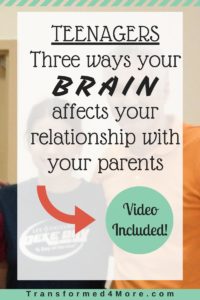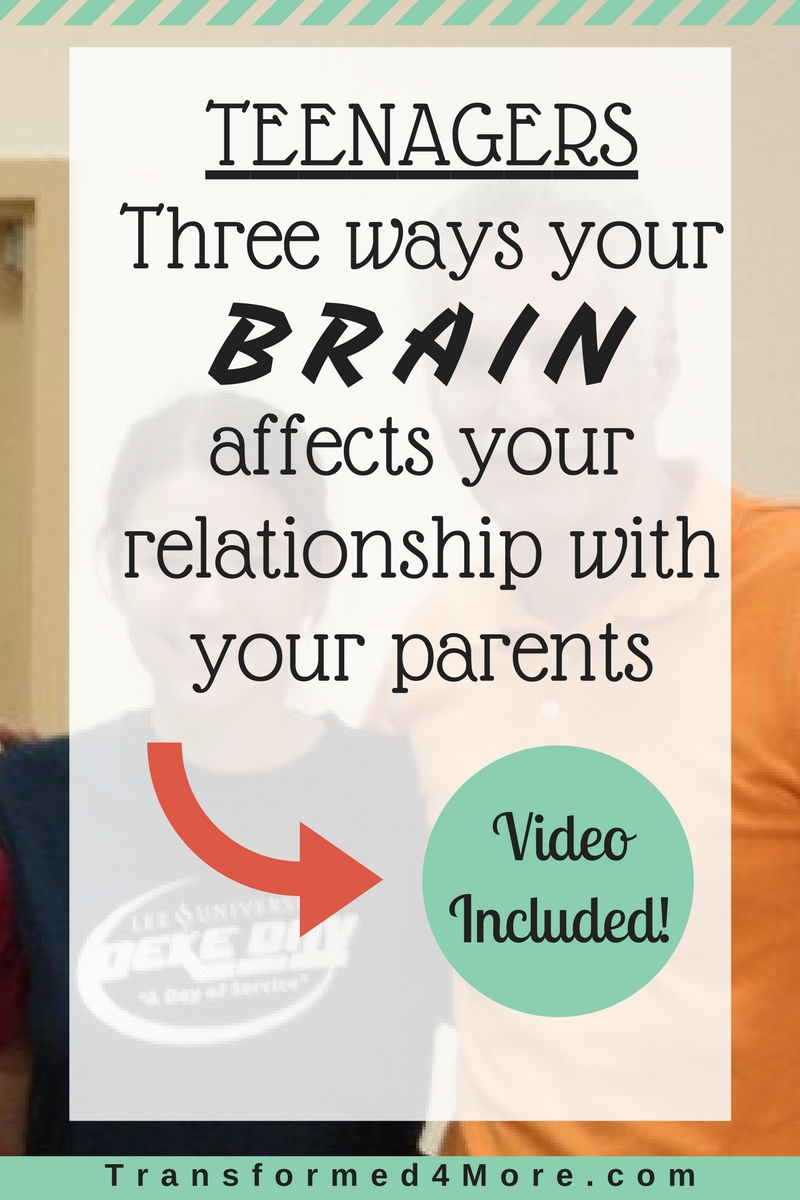*If you haven’t read our post on the teenage brain, you can read it here. It will help you get the most out of this post*
Relationships with parents or caregivers is an inescapable part of teenage life. Throw in your developing brain and raging hormones and chaos can ensue. This post is all about how your brain can affect your relationship with your parents and what you can do to ensure it doesn’t get out of control.
If you really hate reading, which breaks this English teacher’s heart ;), click here to watch the video or scroll down to towards the bottom of the post.
You can misread emotions
Because of your brain development, you tend to be really bad at reading facial expressions. I read a study once that compared an adult brain and a teenage brain on this topic. The adults and teens were shown various pictures with people exhibiting various emotional expressions.
The adults were able to come up with a different word for almost every expression. Teens on the other hand, only came up with about five or six total. They took “fearful”, as shocked or surprised. [To read a little more on the study, if that interests you, click here].
Misreading facial expressions can cause you to think your parents are mad or upset with you when they aren’t. My sister Susan must have asked my mom every three days when we were teens if she was made at her. She constantly asked, “Mom, are you mad?” “Mom are you upset with me?”, and so on. My mom was never once upset at her at those times she asked; Susan was just misreading her expressions.
If she hadn’t asked, Susan would have spent half her teenage life thinking my mom was mad at her when she really wasn’t. Do you think you’ve ever done this? Misread someone and assigned them emotions they weren’t even feeling?
You are emotionally hyperactive
At this point in your life, much of your emotional processing is completed in the amygdala instead of your prefrontal cortex because it is still under development. Since the amygdala is an emotional center in your brain, your emotional responses tend to be over exaggerated.
This means when you’re angry, you are REALLY angry, or if you’re excited, you’re REALLY excited. This can also cause you to over react sometimes.
If you find yourself getting overly upset at your parents or authority figure, “count to 10”, or something of the like, to calm yourself down. It’s better to take a few seconds or a few hours than do something you’ll be punished for or regret.
Your short term memory is struggle bus
This is why teachers have to tell you 20 times, write it on the board, and send out a Remind 101 text every time you have a quiz or a test. Because your short term memory is developing, you have to be told multiple times to remember something. It just doesn’t stick otherwise.
This is part of the reason you forget to clean your room and your parents get upset. [Oh, has that only happened to me? ;)..JK I’m the clean one, it happened to Susan..ha].
If this happens to you, ask your parents if they can remind you again the next day. You could also write it down or set a reminder in your phone to go off so you won’t forget. This is great for school as well.
Do you struggle in your relationship w/ your parents? Your brain may be at fault. Click to learn more. Click To Tweet
RECAP
How your brain development affecting your relationship with you parents and what you can do about it:
- You can misread emotions
- Ask parents if they are actually upset
- Don’t assign emotions to people that they aren’t actually feeling
- Your emotions are hyperactive
- Know that you tend to react to most all situations emotionally
- Try not to get overemotional and take time to calm down if needed
- Your short term memory is struggle bus
- Ask parents to remind you again about tasks
- Write it down or put a reminder in your phone
Do you feel like any of these are affecting your relationship with your parents? Take a few minutes to think and see.
In Closing
If you found this post interesting, make sure to check out the other two in the series:
- Three things you need to know about the teenage brain
- How the teenage brain affects your teenage dating relationships
Until next time,
Sarah
More about our Ministry
At Transformed4More, our goal is to help those who want to grow in their relationship with God and examine popular church trends through scripture. We do this in two ways:
- The first is by providing resources. We have our own and ones we recommend. Click here or the graphic below to see them.

- The second is through social media. We are most active on Instagram, but we update and connect on Twitter, Facebook, Pinterest, and YouTube as well!
- We also have a newsletter we send out every few months with updates as well! You can join it by clicking here.
More from my site
We only e-mail once a month! Sign-up now :).






